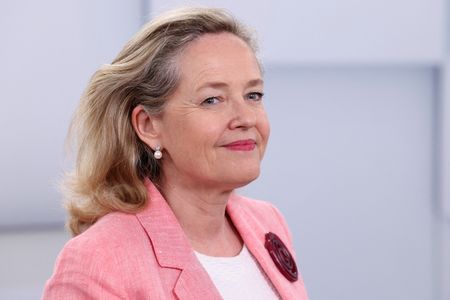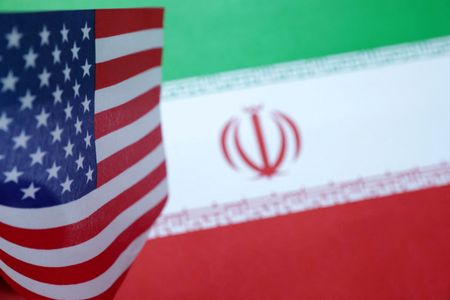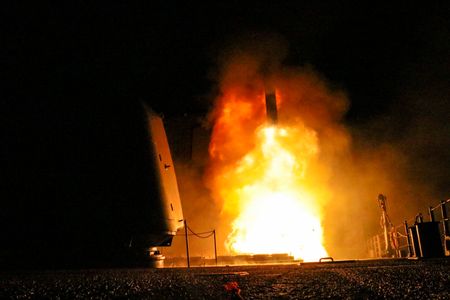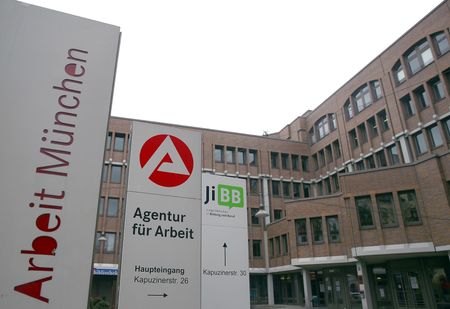By Karin Strohecker and Simon Jessop
LONDON (Reuters) -The European Investment Bank has cut the decision making time for security and defence projects to six months and expects to see the sector’s share of total spending meet or exceed a 3.5% target in 2025 before growing further, its president told Reuters.
The European Union has been looking to mobilise up to 800 billion euros ($938 billion) in defence spending across the region by 2029, under U.S. pressure to fund more of its own security in the face of threats from Russia.
After committing earlier this year to spend 3.5% of its 100 billion-euro lending volume on defence and security, and broaden the range of eligible investments, Nadia Calvino said reducing the time it takes to make an investment decision was crucial.
“We are really reducing the average time to market in the area of security and defence to around six months, and that is remarkable,” said Calvino, president of the EU’s lending arm which is owned by EU governments.
Calvino said no decision had yet been taken on the bank’s overall lending number for 2026 – pegged at 85 billion euros according to its three-year draft plan – but that the pipeline on security and defence projects was “very robust.”
“We are confident that we will … meet that [2025] objective, or maybe even exceed that, and I would expect that the volumes will continue to grow in coming years,” she said.
Asked about the lender’s possible role in the development of a “drone wall” that would provide advanced detection, tracking and interception capabilities along the bloc’s eastern flank, Calvino said she was waiting for concrete estimates and proposals.
“We are already financing projects in the area of drone manufacturing, and in particular drones that destroy drones.”
One example of a quick turnaround in defence was the bank’s 450 million-euro ($528 million) loan for a military campus in Lithuania to strengthen NATO defence capabilities, which was presented in February and signed in June, Calvino said.
CLIMATE THE MAIN FOCUS
As well as defence, the bank also aimed to target a six-month turnaround when assessing venture capital and venture debt for technology startups, she added.
“These are processes, these are decisions where time is of the essence – it marks the difference between successfully supporting a startup or maybe not being able to continue their project further.”
That was also true in the bank’s core focus area of climate change, which accounts for the majority of its spending, she said.
As part of its latest climate roadmap, which received unanimous support from shareholders, the EIB would double the amount of money it invests in adapting to climate change to 30 billion euros by 2030, she said.
The plan for increased spending follows a summer of record extreme heat in Europe. In November, Brazil will host the COP30 global climate conference. Multilateral efforts to combat climate change have been pressured by U.S. President Donald Trump’s decision to exit a deal to rein in global warming.
“The top priority for the European Investment Bank Group is consolidating its role as the climate bank,” said Calvino. “While others are pushing back, Europe is moving forward.”
($1 = 0.85 euro)
(Reporting by Simon Jessop and Karin Strohecker in LondonEditing by Matthew Lewis)








